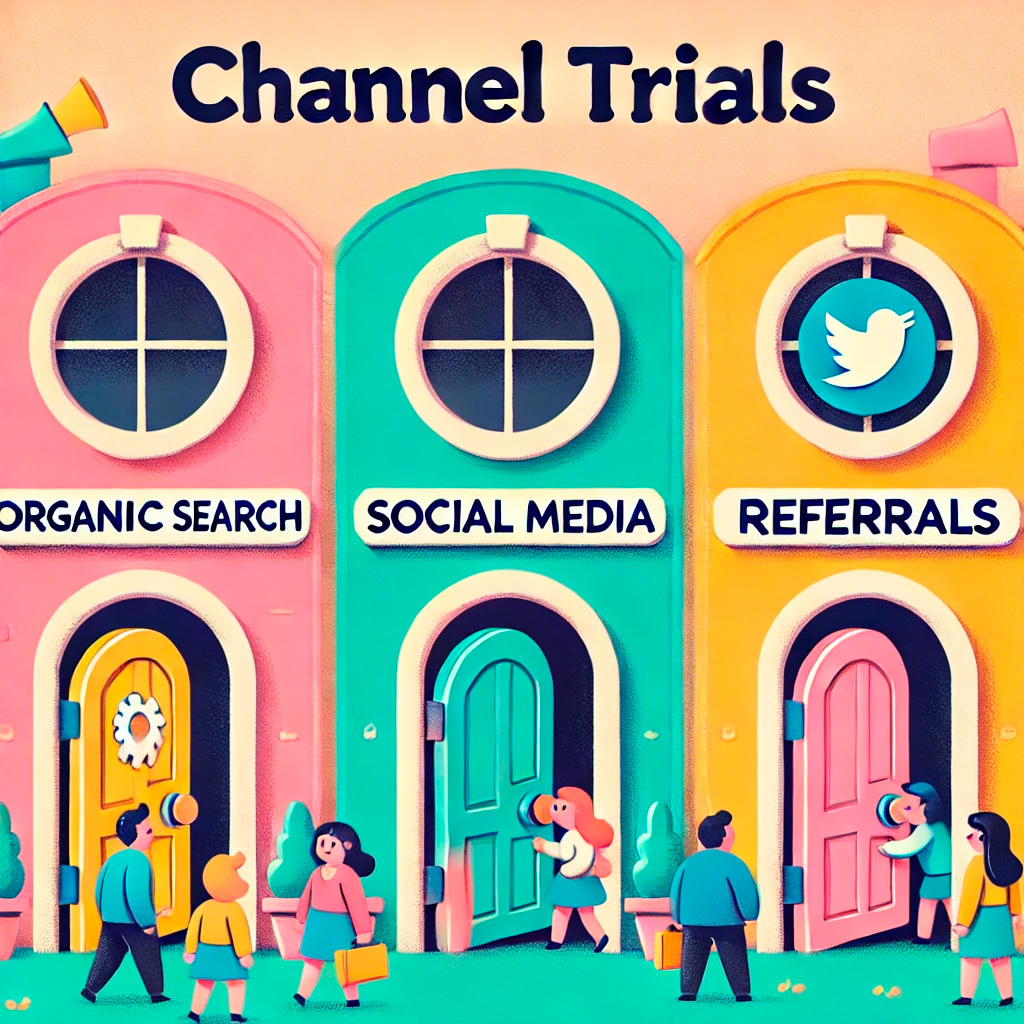
What Are Channel Trials?
Why It Matters
Understanding Channel Trials is super important because it helps you:
- Identify your most effective marketing channels
- Allocate your marketing budget more efficiently
- Optimize your customer acquisition strategy
- Understand customer preferences and behaviors
- Make data-driven decisions about where to focus your efforts
👆 Fun fact: Studies show that businesses using three or more channels in their marketing efforts enjoy a 287% higher purchase rate compared to single-channel marketing.
Common Marketing Channels
- Organic Search 🔍: Trials from users finding you through search engines like Google.
- Paid Search 💰: Trials from users clicking on your paid search ads (e.g., Google Ads).
- Social Media 📱: Both organic posts and paid social media advertising.
- Email Marketing ✉️: Trials from your email campaigns.
- Referrals 👥: When existing users or partners bring in new trials.
- Content Marketing 📝: Blog posts, videos, podcasts, etc. that drive trials.
- Direct Traffic 🎯: Users who type your URL directly into their browser.
How to Track Channel Trials
Use these methods to track trials effectively:
- Use UTM Parameters: UTM parameters are tracking codes added to URLs. Add these to track traffic sources.
- Implement Analytics Tools: Like Google Analytics or Mixpanel.
- Set Up Conversion Tracking: To connect traffic to actual trial sign-ups.
- Use Channel-Specific Promo Codes: For easy attribution.
- Ask Users: Sometimes the simplest way is to ask during sign-up!
Pro tip: Don’t just track the quantity of trials, but also the quality. Some channels might bring fewer trials but higher conversion rates to paid users.
Measuring Channel Trial Success 📊
Key metrics to watch:
- Number of Trials per Channel: Volume of trials generated.
- Trial-to-Paid Conversion Rate by Channel: Percentage of trials converting to paid users.
- Cost per Trial by Channel: How much you’re spending to generate each trial.
- Lifetime Value (LTV) of Customers by Acquisition Channel: Revenue generated per customer by channel.
Real-World Example
Let’s say you run a SaaS project management tool:
| Channel | Trials | Conv. Rate | CAC | LTV |
|---|---|---|---|---|
| Organic Search | 500 | 10% | $50 | $1000 |
| Paid Search | 300 | 15% | $100 | $1200 |
| Social Media | 200 | 8% | $80 | $900 |
| Referrals | 100 | 20% | $30 | $1500 |
Insights from this data:
- Organic Search: Brings the most trials.
- Referrals: Have the highest conversion rate and LTV.
- Paid Search: Offers a good balance of volume and quality.
This data helps you decide where to focus your efforts.
Optimizing Your Channel Trials
Want to boost your channel performance? Try these strategies:
- A/B Test Everything: Headlines, images, CTAs for each channel.
- Personalize Your Approach: Tailor your message to each channel’s audience.
- Retargeting: Use ads to re-engage users who didn’t start a trial.
- Cross-Channel Promotion: Use multiple touchpoints to drive trials.
- Optimize for Mobile: Ensure a smooth trial start process on all devices.
Common Pitfalls to Avoid ⚠️
- Ignoring Attribution Models: Last-click attribution might not tell the whole story.
- Overlooking Assisted Conversions: Some channels might play a crucial role even if they’re not the final touchpoint.
- Focusing Only on Volume: Balance quantity with quality of trials.
- Neglecting Customer Journey: Different channels might be more effective at different stages.
- Ignoring Seasonality: Some channels perform better at certain times of the year.

Leave a Reply